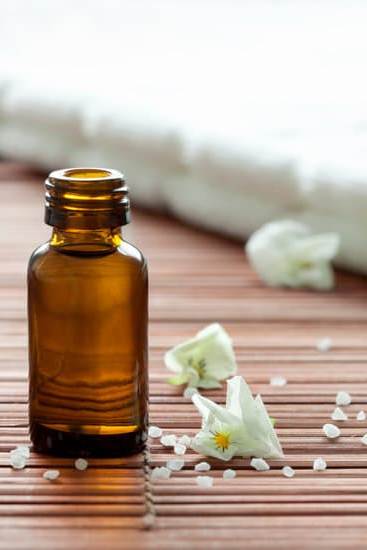Aromatherapy for pets has gained popularity in recent years as pet owners seek natural and holistic ways to support their furry friends’ well-being. One common question that arises is, “what aromatherapy oils are safe for pets?” Understanding the benefits and considerations of using essential oils on pets is essential to ensure their safety and effectiveness.
Essential oils are highly concentrated plant extracts that have been used for centuries for their therapeutic properties. When properly used, these oils can provide various benefits such as relaxation, stress relief, and even immune support for pets. However, it is crucial to note that not all essential oils are safe for animals, as some can be toxic or harmful if ingested or applied incorrectly.
When it comes to choosing aromatherapy oils for pets, safety should always be the top priority. Factors such as species-specific sensitivities, proper dilution ratios, and potential interactions with medications should be carefully considered before using any essential oil on your pet. Consulting with a veterinarian who is knowledgeable about aromatherapy for pets can help you make informed decisions and ensure the well-being of your beloved companions.
Understanding Essential Oils
Essential oils are highly concentrated plant extracts that have been used for centuries for their therapeutic properties. These oils are extracted from various parts of plants, including flowers, leaves, stems, roots, and fruits. The extraction process often involves methods like steam distillation, cold pressing, or solvent extraction to capture the volatile compounds that give essential oils their distinct aroma and benefits.
Steam Distillation
Steam distillation is one of the most common methods used to extract essential oils from plant material. In this process, steam is passed through the plant material, causing it to release its essential oil. The steam carrying the oil is then cooled and condensed, separating the oil from water and resulting in a pure essential oil.
Cold Pressing
Cold pressing is typically used for extracting essential oils from citrus fruits like oranges and lemons. In this method, mechanical pressure is applied to the fruit peel to release the aromatic oils. The gentle process helps preserve the delicate properties of the oils without heat-induced damage.
Solvent Extraction
Solvent extraction involves using a solvent like hexane to extract essential oils from plant material. This method is often used for flowers with delicate aromatic compounds like jasmine and rose. The solvent captures the essential oil molecules, which are then separated from the solvent through evaporation.
Understanding how essential oils are extracted can help pet owners make informed decisions when choosing aromatherapy oils for their furry friends. It is important to source high-quality oils from reputable suppliers to ensure purity and effectiveness when using them on pets. Consultation with a veterinarian is also recommended before introducing any new essential oil to your pet’s routine to ensure safety and appropriate usage.
Importance of Safety
Aromatherapy can offer numerous benefits to pets, promoting relaxation, reducing anxiety, and even aiding in physical ailments. However, it is crucial for pet owners to prioritize safety when using essential oils on their furry friends. There are several key factors to consider when choosing aromatherapy oils for pets to ensure their well-being and avoid any potential harm.
Species-Specific Sensitivities
One of the most important factors to consider when selecting aromatherapy oils for pets is their species-specific sensitivities. Not all essential oils are safe for every type of animal. For example, certain oils that are beneficial for dogs may be toxic to cats or small mammals. It is essential to research and understand which essential oils are safe for your specific pet before using them in aromatherapy sessions.
Quality and Purity of Essential Oils
When purchasing essential oils for use on pets, it is vital to choose high-quality, pure oils from reputable sources. Diluted or synthetic oils may contain harmful chemicals that can be dangerous for pets. Look for essential oils that are labeled as 100% pure and organic to ensure the safety of your furry companions. Additionally, consult with a holistic veterinarian or aromatherapist who specializes in animal care to guide you in selecting the right oils for your pet’s needs.
Dilution and Proper Application
Another crucial factor in ensuring the safety of aromatherapy oils for pets is proper dilution and application. Essential oils are highly concentrated substances that can be too potent for animals if used undiluted. Always dilute essential oils with a carrier oil such as coconut or jojoba oil before applying them topically on your pet’s fur or skin.
Additionally, be cautious about using diffusers around pets as inhaling concentrated vapors can be overwhelming for them. Following proper dilution guidelines and application methods will help prevent any adverse reactions in your beloved pets.
By considering these crucial factors when choosing and using aromatherapy oils on pets, you can safely enjoy the benefits of this natural therapy while promoting the well-being of your furry companions. Remember that each animal is unique, so always consult with a professional before introducing any new essential oil into your pet’s routine.
Safe Aromatherapy Oils for Dogs
Aromatherapy can be a wonderful way to support your dog’s overall well-being, but it is crucial to be mindful of which essential oils are safe for canine companions. Not all essential oils are suitable for dogs, as some can be toxic or irritating to their sensitive systems.
However, there are several essential oils that are not only safe but also offer various benefits for dogs. When using aromatherapy oils on your furry friend, always prioritize their safety and consult with a veterinarian if you have any concerns.
Below is a list of safe and beneficial essential oils that can be used on dogs:
- Lavender: Known for its calming properties, lavender oil can help reduce stress and anxiety in dogs.
- Chamomile: Chamomile oil is gentle and soothing, making it ideal for supporting digestive health and relaxation in dogs.
- Cedarwood: Cedarwood oil is great for repelling insects and promoting healthy skin and coat in dogs.
It is important to note that essential oils should always be diluted before use on pets, as their sense of smell is much more sensitive than humans’. Additionally, only use high-quality, pure essential oils that are safe for pets.
Be cautious of using any blends or products containing artificial fragrances or chemicals that may harm your dog. By using aromatherapy oils responsibly and in moderation, you can enhance the well-being of your dog in a natural and non-invasive way.
Safe Aromatherapy Oils for Cats
Aromatherapy can be a great way to promote relaxation, reduce anxiety, and even address certain health issues in our beloved pets. However, when it comes to cats, extra caution must be taken due to their unique sensitivities. Not all essential oils are safe for felines, as some can be toxic and harmful to them. It is essential to be well-informed about what aromatherapy oils are safe for cats and how to use them properly.
When considering aromatherapy for cats, always remember that their sense of smell is much stronger than ours. This means that they may be more sensitive to the potency of essential oils. Some safe options for cats include lavender, chamomile, and frankincense. These oils have calming properties that can help reduce stress and anxiety in feline companions.
One crucial aspect of using aromatherapy oils on cats is ensuring proper dilution and application methods. Essential oils should never be applied directly onto a cat’s skin or fur, as they can easily ingest it while grooming themselves.
Instead, oils should be diluted with a carrier oil and diffused in the air or applied to bedding or a collar for indirect inhalation. Always observe your cat’s behavior and reactions when introducing new scents, and consult with a veterinarian if you have any concerns about using aromatherapy oils on your feline friend.
| Aromatherapy Oil | Safety Information |
|---|---|
| Lavender | Mild sedative effects; promotes relaxation |
| Chamomile | Calming properties; helps with stress and anxiety |
| Frankincense | Supports overall well-being; anti-anxiety benefits |
Safe Aromatherapy Oils for Small Pets
When it comes to using aromatherapy oils on small pets like rabbits, guinea pigs, and birds, it is essential to understand that these animals are more sensitive than dogs or cats. Therefore, extra caution must be taken when selecting and using essential oils around them. Some essential oils can be harmful or even toxic to small pets, so it’s crucial to choose safe options that provide benefits without causing harm.
Here are some safe aromatherapy oils that can be used around small pets:
- Lavender: Known for its calming and relaxing properties, lavender can help reduce stress and anxiety in small pets.
- Chamomile: Another soothing oil, chamomile can help with anxiety and promote better sleep for your furry friends.
- Cedarwood: This oil is often used to repel insects and can also have a calming effect on small pets.
It is important to always dilute the essential oils properly before using them around small pets. The recommended dilution ratio for small animals is typically 0.1% – 0.5%, as they are much more sensitive than larger animals. Additionally, avoid direct contact with the skin or ingestion of the oils by the animals. Always consult with a veterinarian before introducing any new aromatherapy oils to ensure the safety of your beloved small pet.
How to Safely Use Aromatherapy Oils on Pets
Aromatherapy can be a wonderful way to promote relaxation and overall well-being in pets, but it is crucial to use these oils safely and responsibly. Before using any essential oils on your furry friends, it’s important to understand the guidelines for dilution, application methods, and dosage to ensure their safety.
When it comes to diluting essential oils for pets, always remember that animals are much more sensitive to scents than humans. It is recommended to dilute essential oils with a carrier oil such as coconut oil or olive oil before applying them topically on pets. The general recommendation is to use one drop of essential oil per tablespoon of carrier oil for small animals like cats or rabbits, and up to three drops for larger animals like dogs.
In terms of application methods, aromatherapy oils can be used in various ways on pets. For dogs, you can apply diluted essential oils directly on their collar or bedding, diffuse them in a room where your pet spends time, or even create a soothing pet massage oil blend.
However, always monitor your pet’s reaction and discontinue use if you notice any signs of sensitivity or discomfort. Remember that what aromatherapy oils are safe for pets will vary depending on the species and individual sensitivities, so always consult with a veterinarian before introducing any new oils into your pet’s routine.
| Safe Aromatherapy Oils | Pets |
|---|---|
| Lavender | All Pets |
| Chamomile | Dogs & Cats |
| Cedarwood | Small Pets |
Conclusion
In conclusion, it is crucial to emphasize the significance of conducting thorough research and consulting with a veterinarian before using aromatherapy oils on pets. While aromatherapy can offer various benefits for pets, the safety and well-being of our furry friends should always be the top priority.
Understanding the specific essential oils that are safe for each type of pet, whether it be dogs, cats, or small animals like rabbits and guinea pigs, is essential to ensure their health is not compromised.
When considering what aromatherapy oils are safe for pets, pet owners must take into account factors such as the pet’s species, age, health conditions, and sensitivities. Not all essential oils are safe for use on animals, and some can even be toxic if ingested or applied improperly. Therefore, it is vital to follow guidelines on dilution ratios, application methods, and dosage when using aromatherapy oils on pets.
Ultimately, while aromatherapy can be a beneficial holistic approach to improving your pet’s well-being and addressing certain issues like anxiety or skin conditions, it is always recommended to seek guidance from a professional veterinarian familiar with the use of essential oils on animals. By taking these necessary precautions and prioritizing your pet’s safety and health above all else, you can effectively integrate aromatherapy into your pet care routine in a safe and responsible manner.
Frequently Asked Questions
Which Essential Oils Are Safe for Pets?
It is crucial to be cautious when using essential oils around pets. Some safe options for pets include lavender, chamomile, and frankincense. However, it is best to consult with a veterinarian before using any essential oil on or near your pet.
What Aromatherapy Oils Are OK for Dogs?
When it comes to dogs, some aromatherapy oils that are generally considered safe include lavender, cedarwood, and chamomile. These oils can be beneficial for calming anxious pups or helping with skin issues. Always dilute the oils properly and monitor your dog’s reaction.
Can You Diffuse Essential Oils if You Have Pets?
While diffusing essential oils can have therapeutic benefits for humans, pet owners must be mindful when using them around pets. Some essential oils can be toxic to animals if ingested or inhaled in large amounts.
It is essential to use a diffuser in a well-ventilated area and ensure that your pets have the option to leave the room if they are bothered by the scent. Consulting a veterinarian before diffusing oils around pets is always recommended.

Are you looking for a natural way to improve your health and wellbeing?
If so, aromatherapy may be the answer for you.





